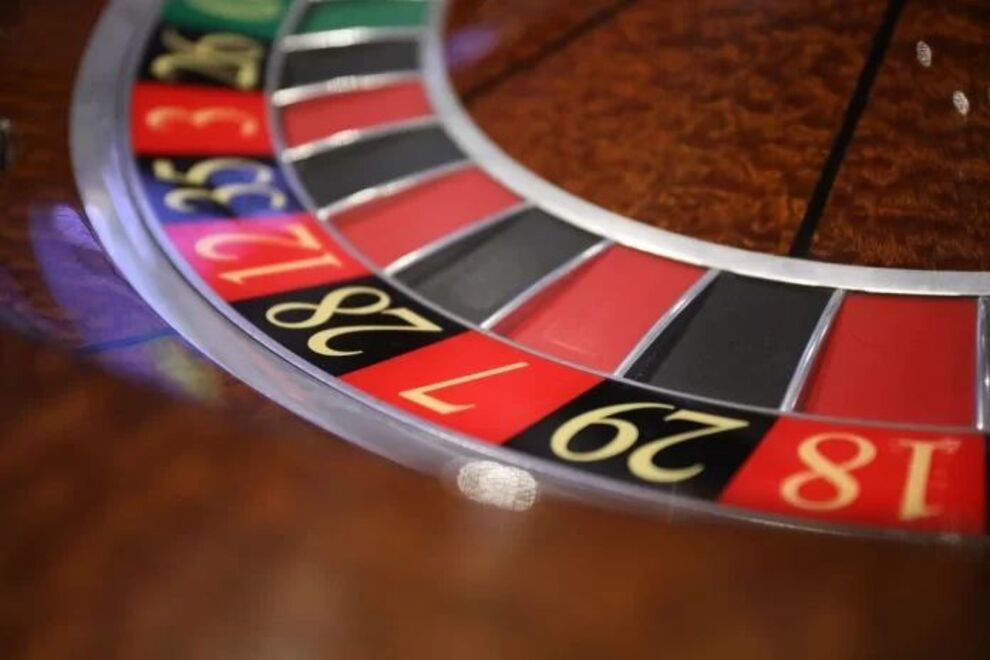When most people think of casinos, one of the first things that comes to mind is roulette as one of the games available. For those with their heads buried in the sand, it is a game of chance with roots in Biribi, an 18th-century Italian low-stakes gaming option. When playing roulette, players place bets on a board in the hopes of correctly predicting where on the wheel a white ball will stop rotating after the wheel on which it is rotating has stopped spinning. There are 36 different numbered options available, as well as ones with odds close to 50/50. For example, you can wager on whether the small white ball will land on a high or low number (19-36), odd or even, red or black. Bets can be placed either before or after the start of a wheel’s rotation. When it is clear that the spinning ball is losing momentum, the croupier will call a halt to the current round of betting. If the ball lands in either of the green zero pockets, all bets are null and void, and the house receives all of the money wagered on the board. The house has a 2.6 percent advantage in the European version of roulette (with one green pocket), while the house has a 5.25 percent advantage in the American version (with two green pockets).
Given the speed of the ball, predicting where the ball will land in a game of roulette is physically and mentally impossible. As a result, roulette is widely accepted as a game of chance. At this point in the process, computers enter the picture. The roulette winning wheel sector has evolved into approximations based on specific designs that account for the deceleration of the ball as well as general physics. They are, by far, the most effective strategy for winning at the Old Continent’s most popular casino game. However, there is a chance that they will not work for online roulette.
The Use of Computers in the Development of Roulette Machines
The use of unfair roulette strategies predates the widespread availability of modern technology. Charles Jagger was a gambler who rose to prominence in France in the nineteenth century by using his engineering skills to identify a bias in a specific game wheel offered at a casino in Monte Carlo. He concluded that the faulty construction of the wheel in question caused it to favor certain numbered positions. After the secret behind his Monet Carlo winning streak was revealed, other gamblers experimented with manipulating roulette games using less sophisticated methods, such as the use of magnets. This was in response to the revelation of the secret.
Until the 1970s, the general public was unaware that technological swindles were used in roulette. Nobody knew about it before that. As a result, a group of French gamblers were apprehended using a radio-signal-controlled ball that they had invented and used. They were able to direct the ball’s landing within a six-number range using this ball. The first roulette computer that measured things like bounce and deceleration, however, had been around since the mid-1960s. This computer was created by mathematician and blackjack expert Edward Thorp, who secretly used it in Las Vegas casinos.
What Are These Computers’ Inner Workings?
As previously stated, once the little white ball begins to spin, they use human understanding of physics to predict the likely outcomes of the game. They accomplish this by examining a variety of reference points with footage. When a ball passes through one of these, software that uses image-recognition technology calculates the speed of the ball. As this procedure is repeated, the computer’s algorithm gathers enough information to perform the mathematical operations required to determine the most likely outcome, that is, which position on the wheel has the greatest likelihood of holding the ball once the wheel has completed its rotation. In theory, roulette computers should be able to work effectively with live streaming tables. However, this is highly dependent on the camera’s angle of view as well as the image’s clarity. They are unable to be used in any way to determine the outcomes of various software variations. In these types of games, random number generators are used. This implies that their outcomes are determined arbitrarily. There is no way to apply physics to that situation.
Are These Items Permissible in Public?
Given that various gaming countries adhere to a variety of different definitions of what constitutes cheating, this is something that might be debated. There are some people who believe that it is only prohibited if the gamblers use a strategy that can affect the result of the game. On the other hand, some authorities forbid anything that removes the element of chance from gaming and require that in order to obtain a license for gambling establishments. The second definition is used by the overwhelming majority of managers in supervisory roles. The use of these things is prohibited by more than sixty percent of gaming licensing and monitoring agencies, according to some estimates.
Where can I purchase a computer for playing roulette?
In spite of the fact that these objects have been the subject of considerable controversy due to the questionable nature of them, those who are interested should have little issue acquiring them. They are available on a wide number of well-known e-commerce websites, such as Amazon.com and eBay, amongst others. Because they are merely a piece of technology, the fact that it is not against the law to sell them should not come as a shock to anyone. The rules governing gambling only apply to their utilization of them. However, the personal computers that are available for purchase on the websites that were mentioned are not the high-end products that seasoned casino customers like to have available to them. Hybrid and MyRulet FF are the companies who make these; the first item costs $80,000 and is by far the best product of its kind; the second item, on the other hand, only costs $800. Even though it is a lot more simple mechanism, it is effective nonetheless.


